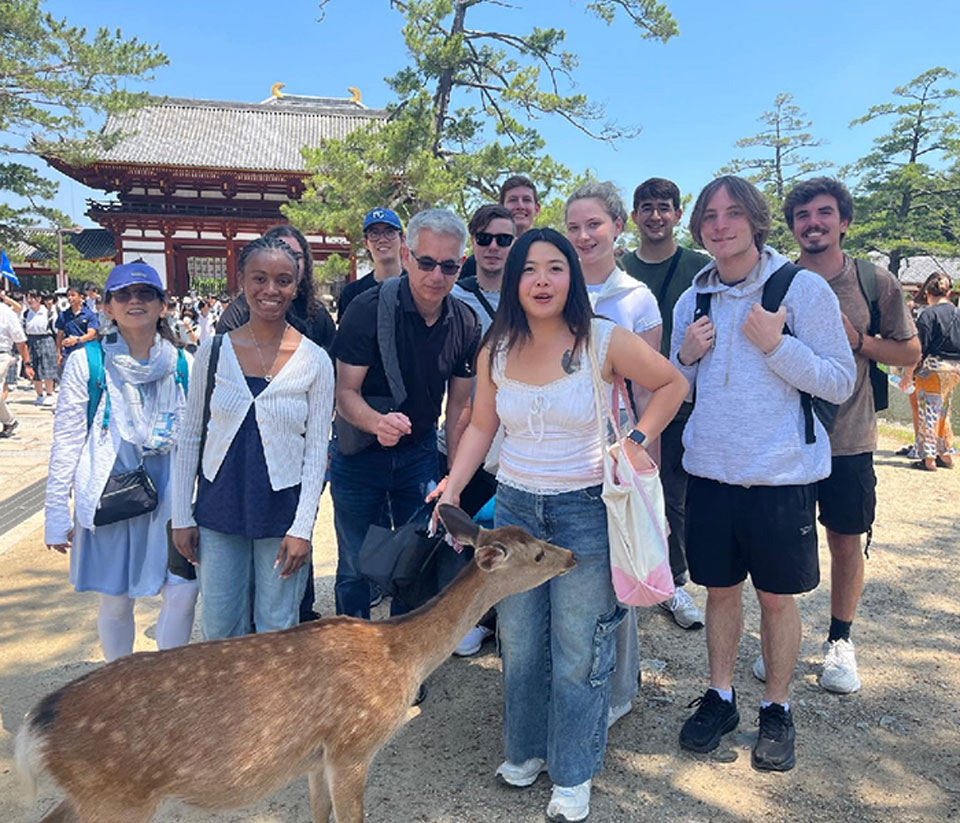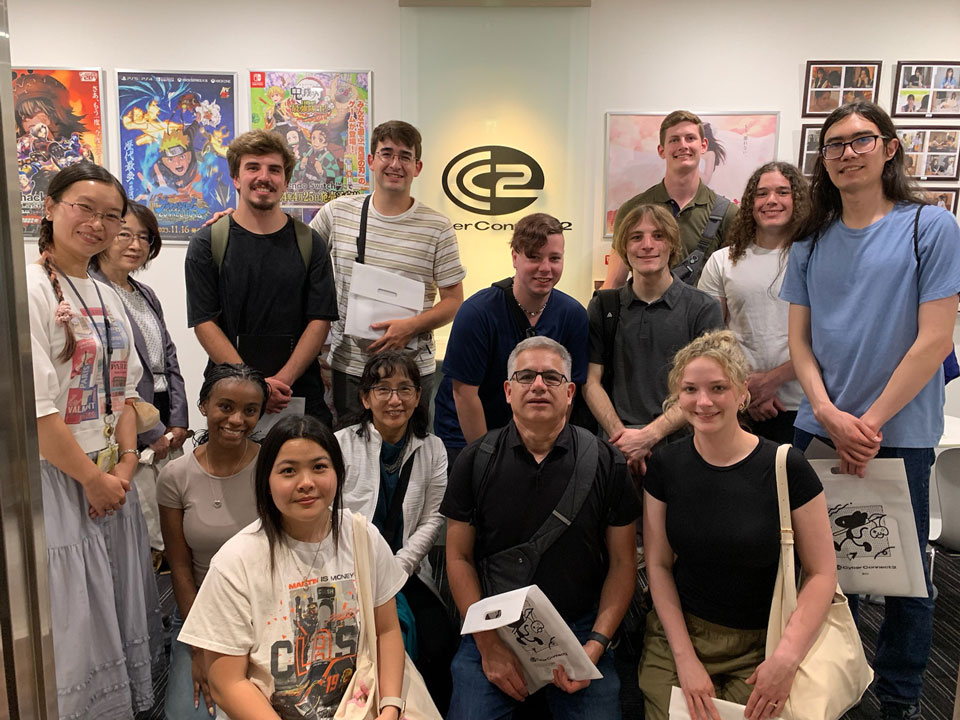Wildcats have transformative interdisciplinary experience in Japan
Wednesday, June 25, 2025

Participants of the KSU in Japan program were greeted by deer in Nara.
Students and faculty who participated in the 2025 KSU in Japan study abroad program returned to the United States with profoundly transformed perspectives. The two-week program ran from May 26-June 9 and allowed students to take courses in computer science and Japanese culture and language while visiting an array of companies, laboratories, cultural sites and historical monuments in Tokyo, Fukuoka, Nagasaki, Nara and Kyoto.
Miki Loschky, teaching assistant professor of Japanese, noted that immersive experiences allowed students to develop an understanding of kaizen, the Japanese concept of continuous improvement, and wabi-sabi, the Japanese concept of finding beauty in imperfection and impermanence.
Kaizen is applicable not only to the optimization of production lines and information flows in manufacturing, but also to Japan's organized system of public transportation and restaurants.
As for wabi-sabi, participating in a tea ceremony and visiting weathered shrines and temples helped students become "more aware of different perspectives and their surrounding contexts, while also having a sense of interconnectedness with nature," Loschky said.
Visits to businesses including Astroscale, Cyber Connect 2, Toyota and Yaskawa Electric Company shed light on Japan's progress in combining efficiency and productivity with human and environmental well-being. Additionally, laboratory tours at Kyushu University and Kyoto University exposed students to cutting-edge research in computer vision and graphics, virtual and alternative realities, and intelligent systems.

A visit to CyberConnect2 gave participants in the KSU in Japan program an insider perspective on video game development.
"It was truly heartening to see students and faculty engage so naturally, exchanging perspectives on education, culture and everyday life in our respective countries," said Jorge Valenzuela, teaching assistant professor of computer science.
Students commented on numerous impactful experiences throughout the trip, from being complimented on their use of the Japanese language to visiting sites laden with history.
"My visit to Nagasaki and the atomic bomb museum was both educational and emotional," said Zariah Berry, communication sciences and disorders major. "It showed me that history is not just about dates and events but about the real effects on people's lives. The museum's careful preservation of artifacts serves as a powerful reminder of the cost of war and the value of peace."
Summing up a perspective shared by participants, Master of Architecture student Henry Simon explained that the program was "truly revelational."
"The cultural insight and perspective I have gained from seeing, interacting and being immersed in a culture and a nation aside from my own will greatly impact the decisions I make in my career and as a global citizen," Simon said.
Plans are currently underway to run the KSU in Japan program again in 2027.